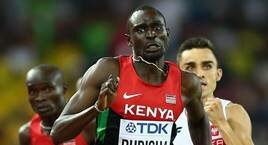In today's digital age, the proliferation of content online has made it easier for sports writers to access a wealth of information, statistics, and analyses at the click of a button. From blogs to official sports websites, writers are bombarded with a continuous flow of data and opinions on all aspects of athletic performance, games, and events. With so much content available, it can be challenging to create original work that brings something new to the table. The temptation to recycle ideas, phrases, or even entire segments from other works can be overwhelming, whether intentionally or unintentionally.
The Importance of Originality in Sports Writing
In the competitive world of sports journalism, originality is key. The value of an article comes from the unique perspective it offers readers. Whether the topic is a groundbreaking analysis of an athlete’s career or a recap of a recent match, sports fans crave fresh insights that they haven’t encountered elsewhere. They rely on sports writers to deliver analysis that is not only accurate but also engaging and thought-provoking.When a sports writer’s work lacks originality, the article can quickly lose its impact. If a reader feels that the content is simply regurgitating well-known information, they’re less likely to trust the source and may seek more engaging content elsewhere. Plagiarism, whether intentional or accidental, undermines the authenticity of the work and damages the writer’s reputation.To avoid such pitfalls, writers are turning to anti-plagiarism tools to ensure that their content is original and free from unintentional duplication. These tools analyze the text for similarities to a vast array of online sources, providing a detailed report that flags any matches with existing content. This allows writers to revise their work accordingly and avoid falling into the trap of copying others’ ideas.
How Anti-Plagiarism Tools Work
Anti-plagiarism tools operate by scanning a writer’s content against a massive database of existing online material. These databases typically include web pages, academic papers, news articles, and other published works. Tools like Paper-checker.com not only provide a comparison against this wide range of content but also offer detailed reports that highlight specific areas of concern.When a sports writer submits an article to a plagiarism checker, the tool scans the text for matches with existing content. It flags any identical or closely matching phrases, providing the writer with an opportunity to rework those sections to ensure originality. This process helps writers avoid both direct plagiarism (copying another person’s work word-for-word) and more subtle forms of plagiarism, such as paraphrasing someone else’s ideas without giving proper credit.One of the most valuable features of modern anti-plagiarism tools is their ability to differentiate between common phrases and genuinely plagiarized material. In the world of sports writing, certain terms, such as “scoring a hat-trick” or “breaking a world record,” are bound to appear frequently across different articles. Sophisticated tools are designed to recognize these common expressions, ensuring that they are not falsely flagged as plagiarism.
Enhancing Ethical Standards in Sports Journalism
Ethical standards in journalism, particularly in the sports industry, are crucial to maintaining trust between writers and their readers. Whether writing for a small sports blog or a major publication, sports journalists are expected to adhere to the highest standards of honesty, integrity, and transparency. Plagiarism, in any form, violates these ethical principles and can have serious consequences for the writer and the platform they represent.For instance, a sports journalist caught plagiarizing content risks losing their credibility, which is a vital asset in the world of journalism. Moreover, if a publication is found to have published plagiarized content, it can face reputational damage, legal consequences, and a loss of readership. To prevent such outcomes, many sports websites and publications now require their writers to run their articles through plagiarism checkers before submitting them for publication.Anti-plagiarism tools play a crucial role in upholding these ethical standards. By helping writers ensure that their work is original and properly attributed, these tools promote transparency and accountability in sports journalism. They provide writers with the confidence that their work is not only high-quality but also ethically sound, which in turn enhances the overall credibility of the publication.
Fostering Creativity and Innovation in Sports Content
Another significant benefit of anti-plagiarism tools is their ability to foster creativity and innovation in sports writing. When writers know that their work will be scrutinized for originality, they are more likely to push themselves to think creatively and develop new ideas. This can lead to more engaging, insightful, and innovative sports content that resonates with readers.For example, when analyzing a major sporting event, such as the Olympics or the FIFA World Cup, many sports writers will cover the same key moments or standout performances. Without careful attention to originality, articles on such events can quickly become repetitive, with each piece offering little more than a rehash of what has already been said. Anti-plagiarism tools encourage writers to approach these topics from different angles, such as focusing on lesser-known athletes, exploring unique statistical trends, or offering personal insights that set their content apart from the rest.Plagiarism checkers provide writers with detailed reports that not only highlight areas of concern but also suggest improvements for enhancing originality. By identifying sections of text that may be too similar to existing content, the tool encourages writers to rethink their approach and come up with fresh perspectives. This process ultimately leads to more diverse and innovative sports writing that captures readers’ attention and provides them with valuable insights.
Building Trust and Credibility with Readers
In the world of sports writing, trust is everything. Readers look to sports journalists for accurate, reliable, and original content. When a writer repeatedly produces plagiarized or unoriginal content, they risk losing their audience’s trust, which can be difficult to rebuild. On the other hand, when a writer consistently delivers high-quality, authentic sports content, they can establish themselves as a trusted voice in the industry.Anti-plagiarism tools are essential in building and maintaining this trust. By using these tools, sports writers can ensure that their content is both original and credible. This not only enhances their personal reputation but also strengthens the relationship between the writer and their readers. Trustworthy sports writing is particularly important in today’s digital landscape, where misinformation and low-quality content are rampant.Additionally, plagiarism checkers help writers avoid the potential legal issues that can arise from plagiarism. By ensuring that all sources are properly cited and that no content is duplicated without permission, these tools protect both the writer and the publication from copyright infringement claims. This adds another layer of credibility to the content, reassuring readers that the information they are consuming is accurate, reliable, and legally sound.
Conclusion
In a world where content is abundant and competition is fierce, originality and authenticity are more important than ever for sports writers. Anti-plagiarism tools offer invaluable support in ensuring that sports content is free from plagiarism, ethically sound, and genuinely unique. These tools not only help writers avoid unintentional duplication but also encourage them to think more creatively, producing content that is both engaging and innovative.For any sports writer looking to build a reputation for high-quality, trustworthy content, anti-plagiarism tools are essential. By using these tools, writers can ensure that their work stands out in a crowded field, offering readers fresh perspectives and insights that they won’t find anywhere else. Ultimately, these tools play a vital role in fostering originality, promoting ethical practices, and enhancing the overall quality of sports journalism.In an era where credibility is paramount, the role of anti-plagiarism tools in creating authentic sports content cannot be overstated. Writers who embrace these tools not only safeguard their reputation but also contribute to the continued growth and development of high-quality, innovative sports journalism.

